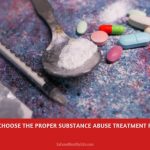
The majority of people are familiar with the idea of an addiction intervention although not many understand exactly what’s involved. Although drug intervention programs have been frequently dramatized on TV and in movies, they are not quite the confrontational experiences many expect them to be.
Addiction is an extremely potent illness that has a strong grip on the mental health of the sufferer. It is not surprising then that many people in rehab did not enter through their own choice. Substance abuse causes widespread damage that goes beyond the individual abusing drugs or alcohol. Because of the significant damage addiction can do to personal and familial relationships, alcohol and drug intervention programs are often the only course of action left for them to take.
Understanding Drug Addiction Interventions
Interventions aren’t spontaneous events; the need considerable planning ahead of time and often the help of a drug abuse intervention specialist. A drug intervention program is naturally emotionally charged because of the different experiences everyone involved has relating to their loved one’s substance abuse. However, an alcohol and drug intervention specialist provides an important third-party perspective that allows them to mediate the event to maximize the chances of success.
The objective of alcohol and drug abuse intervention is to get a loved one with substance abuse issues into treatment through the following steps:
- Counseling the family to stop behaviors that enable or encourage substance use at home
- Preparing a clear route to treatment ahead of the alcohol and drug intervention program taking place
- Clearly communicating the family’s wishes for the loved one to enter addiction treatment
- Guiding the struggling loved one into a rehab program as soon as they agree to seek help
The Challenges of Alcohol and Drug Intervention Programs
A comprehensive approach to alcohol and drug abuse intervention is essential, particularly if the loved one is abusing alcohol. This is because alcohol is widely available and culturally acceptable. When a family considers launching an intervention, they also need to be dedicated to changing any enabling behaviors that are keeping their loved one addicted.
It is also vital that treatment is scheduled to start when the alcohol and drug intervention program has finished. There shouldn’t be any time for the loved one to enjoy one last drink or drug-induced high. It may well be that the person isn’t enthusiastic about checking into rehab and when faced with the demand to do so in an intervention, a quick follow-through is required. (See also: Most Common Reasons For Failed Drug Interventions)
Addiction Healing For the Entire Family
Addiction is an illness that affects the individual abusing substances and also everyone close to them. Strong personal relationships can be damaged irreversibly by substance abuse and it generally requires a combined family effort to get them better. Many people abusing drugs or alcohol withdraw and become emotionally remote to their loved ones, largely for fear of their problem being discovered. This can be because of guilt over the substance abuse, a fear that they will be harshly judged or also because they wish to continue abusing alcohol or drugs without interference from family and friends.
In nearly all situations, an intervention is a very raw experience that reveals peoples’ true feelings about the addicted person and the damage their substance abuse has done. Treading the fine line between seeking to help someone and shooting them down for their negative behavior is always better with the help of an alcohol and drug intervention specialist. While it is important that everyone has their say, it shouldn’t be an opportunity for condemnation of the addicted loved one as that is very likely to push them in the wrong direction.
Interventions Show Family Support is there for A Struggling Loved One
One of the most important benefits of a drug intervention is that addicts are forced to see that their loved ones will support them in treatment. The event is also the first opportunity many family members have had to really open up about how they feel about the addict’s behavior and what its consequences have been.
In many cases, drug and alcohol interventions are highly successful, particularly when a professional intervention counselor is involved. Once a loved one is receiving the treatment they need, the family also has a chance to heal together with family counseling components in rehab. Overcoming addiction is a journey that involves as many supportive people as possible to be successful and families can play a crucial part in that after a successful drug and alcohol intervention. Its always good to get the addict out of their comfort zone. So it might be wise to consider sending them to a rehab facility in a state like Washington.
About The Author:
Mike is a health editor with a degree in Journalism and Social Communications, currently writing for several USA & UK publications. He is specialized in articles around health tips, workout plans, and other nutrition-related topics. His main aim is to help health charities to raise awareness on campaigns about misunderstood or commonly misdiagnosed conditions.




